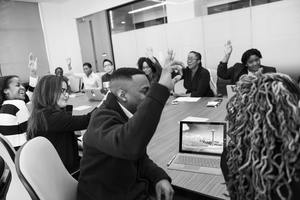Fostering social and political dialogue through the BEST Project

Democracy is an extremely complex political system. In order to work in the best and most complete way, it needs many conditions to be fulfilled: widespread trust in the institutions; systems of guarantee balancing the different public authorities; autonomous, pluralist and deontologically correct information; a widespread culture, intermediate bodies that innervate society, and an active and aware citizenship. This means, in fact, that democracy is a process, a plant that must be tended and nourished through and within public policies. The active participation of citizens does not come about spontaneously: actually it must be nurtured through culture and education. This is what our organization has been doing since its origins, promoting citizens' self-organization, mutualism, education and popular culture.
Within the project "BEST, Build European Solidarity Today: Let's replay the Fraternity Card!", co-funded by the EU Erasmus+ programme, involving various organizations engaged in the field of education and promotion of citizenship together with Arci, six Arci committees have been active in bringing into the school system a proper education to participation and solidarity in a European perspective. Through photos analysis and creative writing workshops, the Project triggers an exchange of postcards between Italian, Polish, French, Croatian, Slovenian and Spanish students with the aim of establishing strategies for building solidarity.
Almost 50,000 students and 2,000 teachers across Europe are taking part in this process, a sign of our commitment to strengthening European dialogue.
In this vision of democracy, our role is not just "doing", but also fostering social and political dialogue and making proposals that produce positive change. For this reason, the Arci led partners to elaborate a policy document on education for citizenship, a policy brief that condenses their position and recommendations on this specific topic.
The document was then proposed in each country to various institutional actors relevant to citizenship education, the release of competences and skills in European educational systems and the relationship between educational institutions, local administrations and third sector bodies, in an advocacy process aimed at creating a more efficient system in the recognition of competences related to citizenship education, linking formal, non-formal and informal contexts and enhancing the commitment of CSOs.
We are glad to announce the first step at Italian level in the process of promoting global citizenship education: currently, two meetings have already taken place, one with Senator Francesco Verducci, Vice-President of the Senate Education Commission, and one with the President of the National Youth Council, Maria Cristina Rosaria Pisani. Other meetings are planned with representatives of students, teachers and the third sector. Our commitment in weaving and sharing aimed at elaborating a plural proposal that gathers competences, knowledge and political sensitivity.